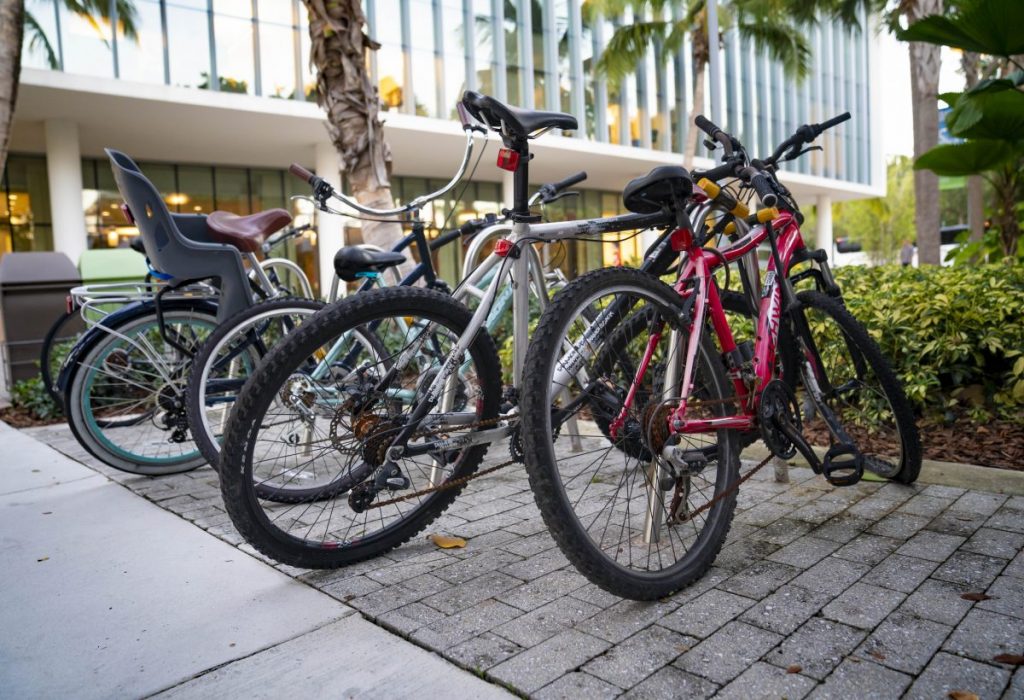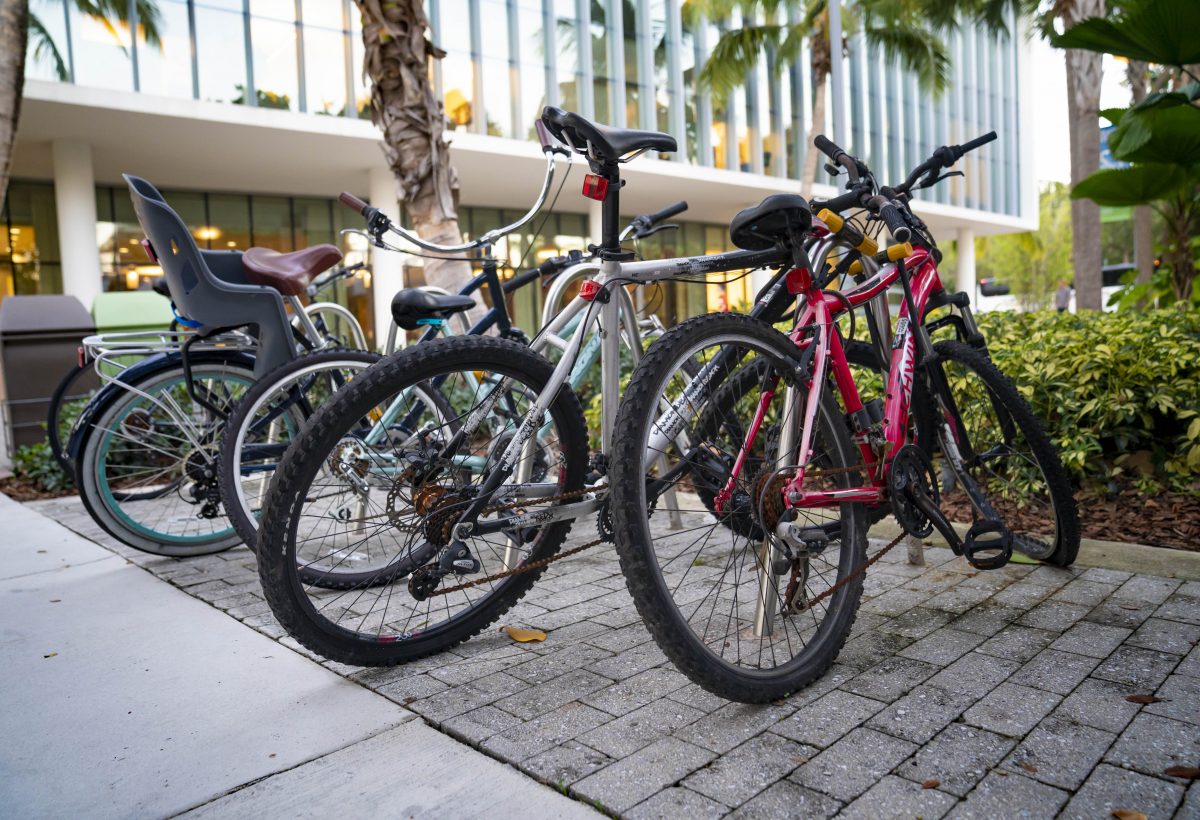
Skateboarding and biking are both popular, environmentally friendly ways to get around campus. However, some students have expressed concern over whether or not UM’s infrastructure makes it a viable transportation option for students looking to commute in a safe and practical manner.
Freshman Marisa Cabral said she often has trouble skateboarding to class. She said it’s impossible to skateboard in heavily populated areas of campus, or while people are moving from class to class. Cabral also said that skateboarding through a crowd can be especially dangerous because many people walk around wearing headphones and often don’t hear skateboarders coming up behind them.
“If the school were to create bike paths I definitely feel that it would improve commuting on campus for cyclists and skateboarders as a whole,” said Cabral, a marine science and biology major.
Because UM does not have designated bike lanes, bicyclists and skateboarders must use the pedestrian sidewalks, often forcing them to swerve around students who are traveling on foot.
Lucas Payne, a freshman majoring in marine science and biology, said although he enjoys skateboarding to class, traveling on the sidewalks can be a problem, especially when people aren’t paying attention to their surroundings.
“Students often do not look around them, and the sidewalks are also very small for the amount of traffic they tend to get,” he said.
Not only are the crowded sidewalks a problem for bicyclists and skateboarders, but also the pedestrians. Brianna Marin, a freshman entrepreneurship major, said UM should have bike lanes in addition to regular sidewalks. For her, it’s a safety concern.
“Often when I am not paying attention— either because I am listening to music, texting or talking with friends— bikers come towards my space, which is unsafe not only for me but for other students who commute by walking,” said Martin.
According to UM’s Department of Public Safety, “university policy requires that all bicycles kept on campus be registered with the Public Safety Department.” The State of Florida considers bicycles to be vehicles, meaning cyclists are bound to many of the same laws as drivers.
Specifically, cyclists must abide by certain guidelines in order to prevent injuries to themselves and the surrounding individuals. Some of these procedures include wearing helmets and bright colored clothing and riding with the flow of traffic. However, there are not explicit protocols for skateboarders and bikers on how to ride on sidewalks with pedestrians.
Despite this uncertainty, the League of American Bicyclists has recognized UM as a “bike-friendly university” at the bronze level since 2012.
UM’s Department of Parking and Transportation is attempting to improve students’ abilities to bike and skateboard on campus by installing regular and covered bike racks, as well as progressively making wider sidewalks.
“Our continuous goal is to encourage bicycling as a recreational and sustainable transportation option for our campus community,” their website says.
However, students are still calling for more change.
“I do believe that if UM installed bike paths it would make it easier for skateboarders like myself to commute more efficiently while also preventing any possible accidents,” said Partington Chu, a freshman majoring in mathematics.







